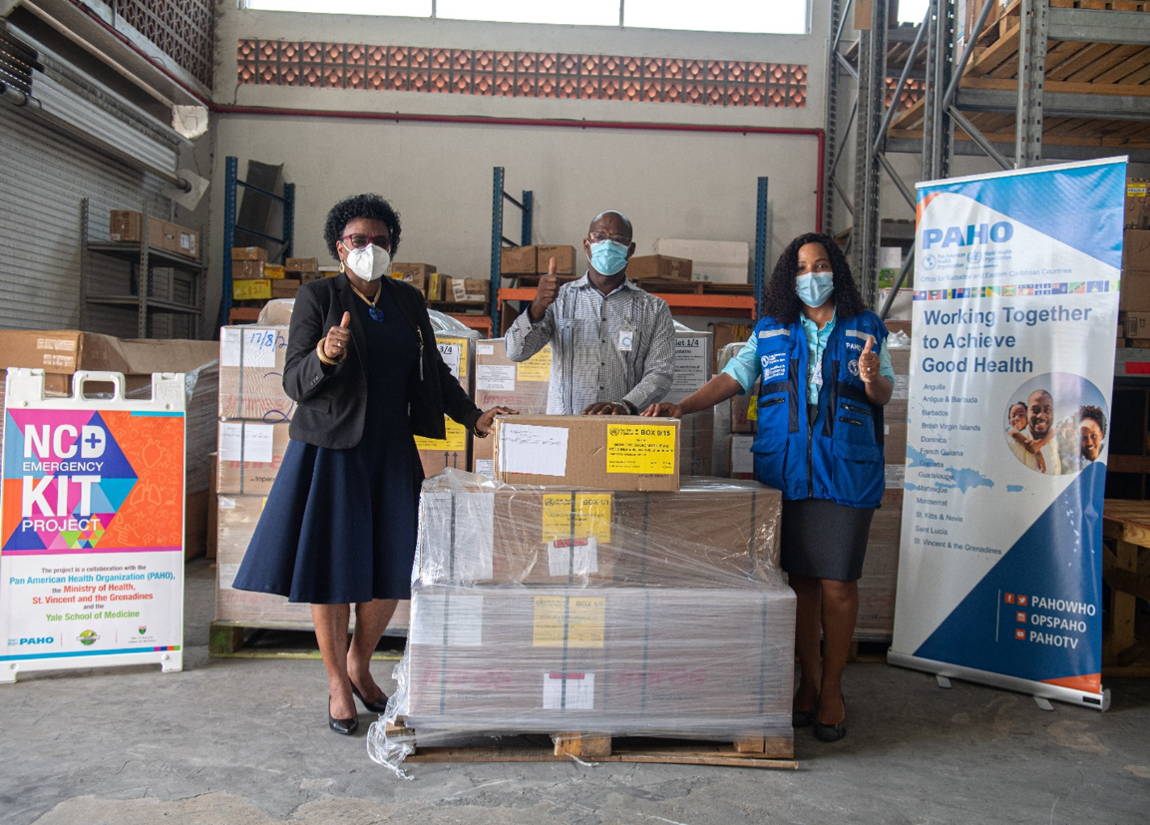Climate Change and Resilience
The Caribbean is singularly vulnerable to climate change. Shortages of food and clean water, diminished air quality, increased spread of infectious disease, and the repeated barrage of hurricanes, floods, heatwaves, and droughts present constant, pervasive threats to residents’ physical and mental health and regional safety and stability. ECHORN in working in partnership with other organizations to understand and alleviate these risks through research and community action.
Weathering Healthcare Disruptions
Representatives from PAHO and the St. Vincent & the Grenadines Ministry of Health received NCD kits after the La Soufrière eruption. Photo credit: Ministry of Health, Wellness and the Environment, St Vincent & Grenadines
Using World Health Organization NCD Emergency Kits to Manage Chronic Illnesses during Natural disasters
At least 30% of the deaths following Hurricanes Irma and Maria resulted from non-communicable diseases that were not adequately managed in the wake of the storms. Prolonged power outages, disrupted supply chains, and displacement prevented people living with hypertension, diabetes, heart disease, and other chronic illnesses from accessing necessary care.
The study team is working with the Pan American Health Organization (PAHO) and Primary Care International to deploy WHO emergency kits in the Caribbean. Each kit includes essential medicines, basic diagnostic equipment, and treatment guidelines. The goal of the study is to integrate these kits into the standard response to regional natural disasters. Team members, led by Dr. Saria Hassan, are using an implementation science strategy to ensure that the kits are deployed quickly, equitably, and safely. This approach enabled them to quickly pilot a deployment process in response to the La Soufrière volcanic eruption in St. Vincent and the Grenadines in April 2021.

